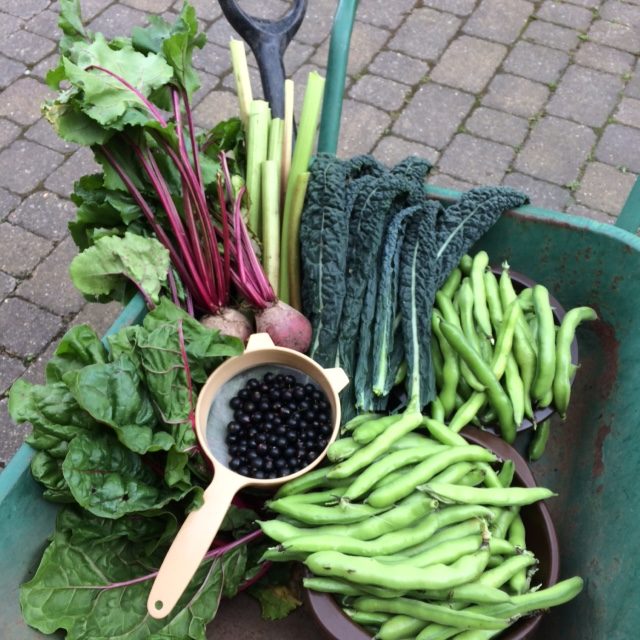
Could Vegetables be the Answer?
I was in a queue at the fish van the other day when yet another report was in the papers listing meat and especially processed and red meat as contributing to cancer. People were talking about it and the consensus seemed to be that you can’t believe anything anymore as we are told so many conflicting pieces of advice. The same day I was reading a preview about a book by an American who used to believe that a high meat diet was the answer to health problems and weight control. Now he has turned tables after his own health suffered and gone to the opposite extreme citing meat as the cause for most health problems from cancer to heart attacks, diabetes to poor brain function. He also says that grains help to keep inflammation levels in the body low, whereas the anti-grain brigade would cite them as the main cause of inflammation. It can all be very confusing and I understood the sentiments of those in the fish queue.
When I trained as a Nutritional Therapist in the 1980’s I had an amazing training and very little of what I was taught hasn’t stood the test of time. We were taught that the only foods that created alkalinity in the body (ie low inflammation) were fruit and vegetables but as fruit is high in sugar this should be limited to 2 pieces per day so vegetables should be the mainstay of our diets. Everything else produces acidity but in varying amounts, millet being the least acidic producing grain, red meat the most acidic producing meat. So I can see where some of this information comes from, but so much of it bends the truth, becomes extreme or doesn’t present a balanced picture.
Life in so many areas is about balance and diet is no exception. In the same way that excess meat is not good for us excess of some vegetables or a lack of meat can also cause problems. Too many cruciferous vegetables are thought to interfere with the working of the thyroid gland causing hypothyroidism. Kale which is one of these has been hailed as a wonder food over the past few years but should it be eaten daily? A lack of meat can result in a B12 deficiency so vegans often take a supplement. I’m not against supplements as such, but I feel a diet where they are necessary can’t be balanced.
Let’s start looking at the whole picture rather than snapshots of individual foods. I eat a diet centred around vegetables and as wide a range as possible but I love my porridge or cereal for breakfast and will still be having my roast dinner. It won’t contain masses of meat and the vegetables will fill most of the plate but it will still be a roast. I still occasionally eat sausages and bacon but I search around for preservative free ones as sodium nitrate is something I try to avoid. I also avoid overcooking meat – that barbequed charred protein is not good so I avoid it. If you look at the areas of the world where people live the longest, their diets are always full of plant protein. They may eat cereals, meat, fish or vegetarian alternatives such as soya or nuts but the base is always a wide range of vegetables and fruit. Let’s take note.
